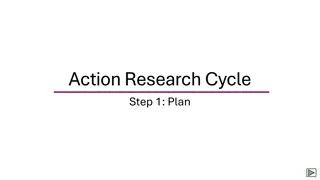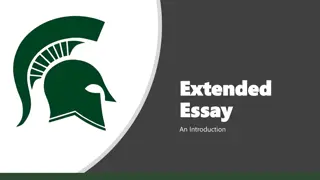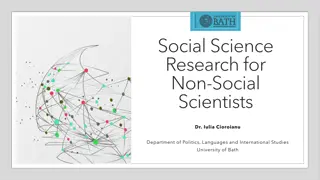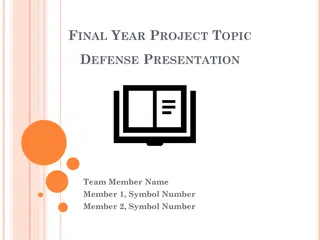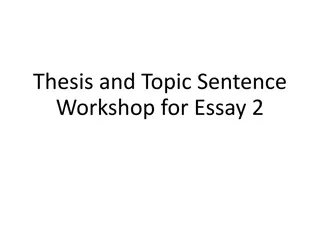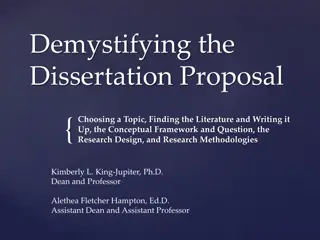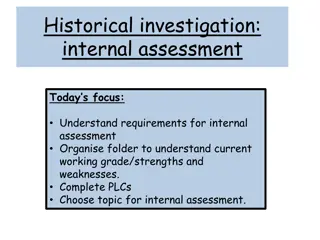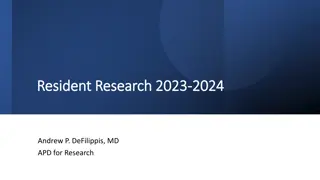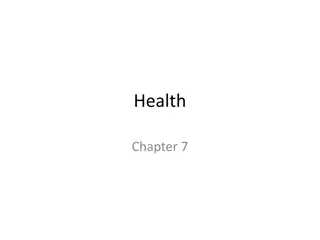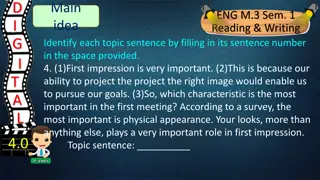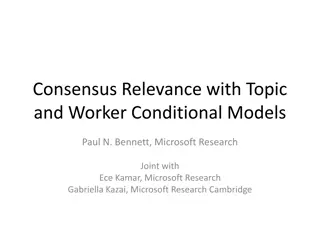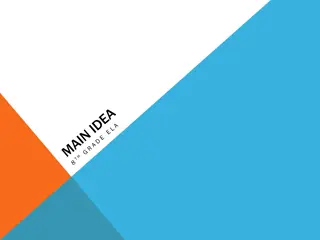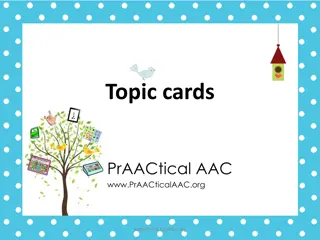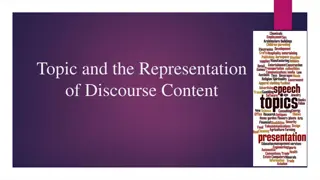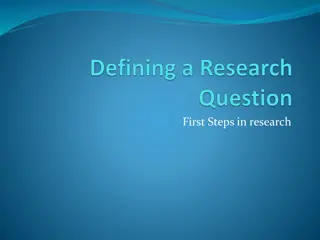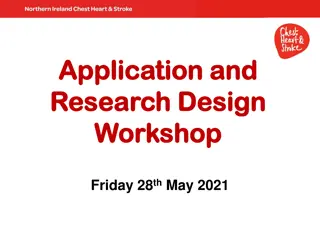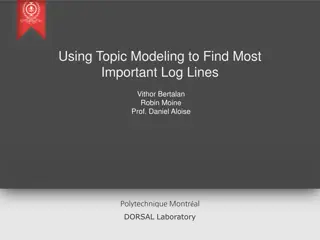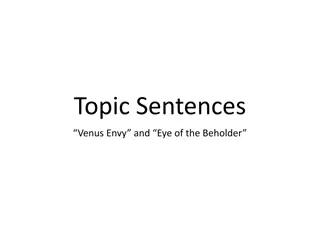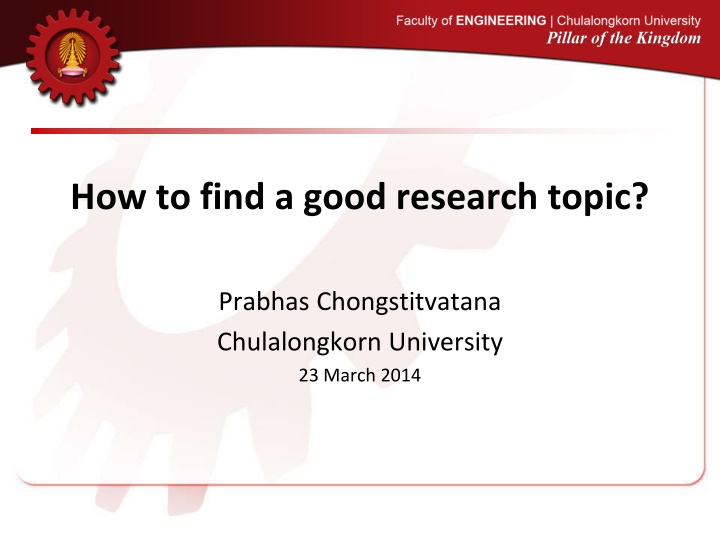
Effective Strategies for Research Topic Selection
Discover practical tips and methods to find the perfect research topic. Learn how to set the right objectives, choose the right perspective, and utilize available resources for successful topic selection in academia.
Download Presentation

Please find below an Image/Link to download the presentation.
The content on the website is provided AS IS for your information and personal use only. It may not be sold, licensed, or shared on other websites without obtaining consent from the author. If you encounter any issues during the download, it is possible that the publisher has removed the file from their server.
You are allowed to download the files provided on this website for personal or commercial use, subject to the condition that they are used lawfully. All files are the property of their respective owners.
The content on the website is provided AS IS for your information and personal use only. It may not be sold, licensed, or shared on other websites without obtaining consent from the author.
E N D
Presentation Transcript
How to find a good research topic? Prabhas Chongstitvatana Chulalongkorn University 23 March 2014
How to find a good research topic? Prabhas Chongstitvatana Chulalongkorn University
This perhaps is one of the most difficult question every research students must confront. It sounds hard but it is not. There are several approaches to tackle this question. I will show you a few of my tricks.
Outline Make a right aim Execute the right steps Examples from real-life
Make a right aim Level domestic regional international
Make a right aim Objective to complete a degree requirement to meet an academic promotion to solve problems to satisfy one's curiosity
Make a right aim Perspective self-centred present market future
Method Lecturer Student find academic companion use strength, advantage of environment choose by topics choose by advisors choose by skill set
Tips Lecturer Student than you have aim for long term must rejuvenate motivation and curiosity don't do what you are not good at don't do things that take too much time
Success Factors in Computing Research Computing Knowledge Determination Funding Motivation Maturity Research Perseverance Luck Independence English Scientific Method Analytical Skill Reading & Writing Skills
To do your research 1 Post a problem statement 2 Design a method to solve the problem 3 Negotiate the expectation of the result 4 Do it
Supervised Research Good communication between you and your advisor Work out what will be the result of your research. Discuss it with your advisor Convince yourself of the "value" of your proposed research. Also convince your advisor. Your advisor will guide you through the jungle of difficulty. (and not really tell you how to do it)
You will Read a lot, to know what is the current state of the art Talk a lot, to synthesis your idea Write a lot, to make your idea concrete and to communicate your idea formally.
Pit fallsof Grad Students Don't choose the topic that requires new skill. For example, if you are proficient C programmer, use C. Don't try to learn a new language for your thesis. The time is too short. Get the scope of your work right. Most oftenly, you underestimate the amount of work required and overestimate your ability. The time is too short. The time is always too short. Don't postpone any work, do it now.
My own observation Research is very much social activities but a lot of time you need quiettime and place to think hard. Motivation is very important find the topic that suite your interest and work with your advisor to make it doable. Publication always takes more time than you expect. Start writing a thesis is difficult but finishing one is easy.
Tips Read is NOT Do Know is NOT Understand
Examples 1. Read other works then make it better (sudoku) 2. Do what you are interested in then compare with others (cpu) 3. Invent and find its advantage (coin) 4. Solve a problem then differentiate (solder)
Solving Sudoku Puzzles with Node Based Coincidence Algorithm
An Embedded Processor with Instruction Packing
Lead-free Solder Alloys Lead-based Solder Low cost and abundant supply Forms a reliable metallurgical joint Good manufacturability Lead-free Solder Excellent history of reliable use No toxicity Toxicity Meet Government legislations (WEEE & RoHS) Marketing Advantage (green product) Increased Cost of Non-compliant parts Variation of properties (Bad or Good)
Sn-Ag-Cu (SAC) Solder Advantage Sufficient Supply Good Wetting Characteristics Good Fatigue Resistance Good overall joint strength Limitation Moderate High Melting Temp Long Term Reliability Data
Enjoy doing research prabhas@chula.ac.th Prabhas Chongstitvatana

